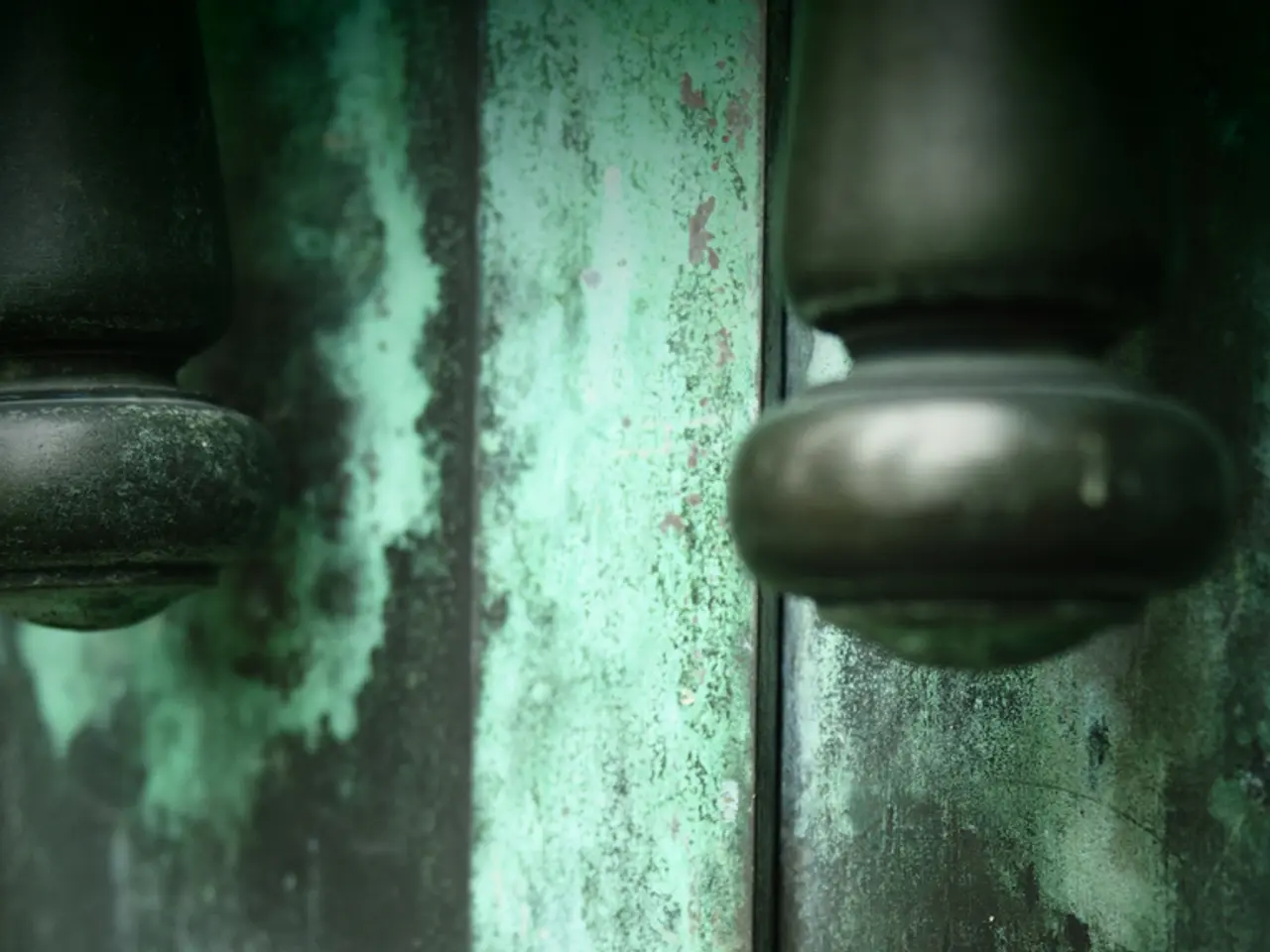Exploring the Security Levels of Modern Digital Door Locks
In the modern world of home security, smart locks have emerged as a popular choice for homeowners seeking convenience and enhanced security. However, traditional locks still hold their own appeal due to their simplicity and cost-effectiveness. Let's delve into the advantages and disadvantages of both types of locks.
**Smart Locks**
The primary advantage of smart locks lies in their advanced security features. These devices often come equipped with alarms, cameras, and integration with home security systems, providing an enhanced layer of protection [1]. Moreover, users can lock or unlock doors remotely via apps or voice commands, offering improved access control [1]. Biometric authentication, such as fingerprint, facial recognition, or PIN codes, further boosts security [1].
However, smart locks do have their drawbacks. They require batteries or electricity, which can soon run out if not properly maintained [1]. Additionally, setting them up can be complex for some users, requiring network setup and app configuration [1].
**Traditional Locks**
Traditional locks, on the other hand, are mechanical and function even during power outages [3]. They are also cost-effective, with replacing a traditional key being inexpensive compared to replacing a smart lock [3].
Despite these advantages, traditional locks are more susceptible to lock picking and bumping techniques [3]. Once a key is lost, anyone with it can gain access unless the lock is rekeyed [3].
**Precautions Against Hacking for Smart Locks**
To enhance the security of smart locks, it's crucial to keep the software up-to-date with regular firmware updates [2]. A secure network connection, such as Wi-Fi, should be used to prevent unauthorized access [1]. Strong passwords and multi-factor authentication (MFA) should be employed when logging into the smart lock app [4]. Regularly monitoring the lock's activity log can help detect any suspicious behavior [5]. Purchasing smart locks from trusted manufacturers or authorized dealers can minimize the risk of tampering [6].
By taking these precautions, you can significantly enhance the security of your smart locks against hacking threats.
Smart locks work with Bluetooth and Wi-Fi and can be a useful choice for disabled or elderly residents due to their convenience in preventing lockouts. Some smart locks have the ability to automatically lock doors when the homeowner leaves a designated perimeter, reducing the chance of forgetting to lock doors at night. Furthermore, smart locks reduce the need for carrying house keys, as they only require a smartphone.
In conclusion, the decision to use smart locks depends on personal preference, considering both their benefits and potential drawbacks, such as frequent power outages or loss of mobile phone. Proper research is essential when considering the purchase and installation of smart locks to determine if they are worthwhile for a specific home.
- In the realm of technology and gadgets, encyclopedia entries on smart-home devices often highlight the security benefits of smart locks, such as their integration with home security systems, remote access control, and biometric authentication, making them an attractive choice for homeowners.
- While encryption is essential for securing smart locks from potential hacking threats, it's also crucial to remember that traditional locks, despite their simplicity, may be vulnerable to lock-picking and bumping techniques, highlighting the importance of evaluating both traditional and smart-home security options when considering home safety.




